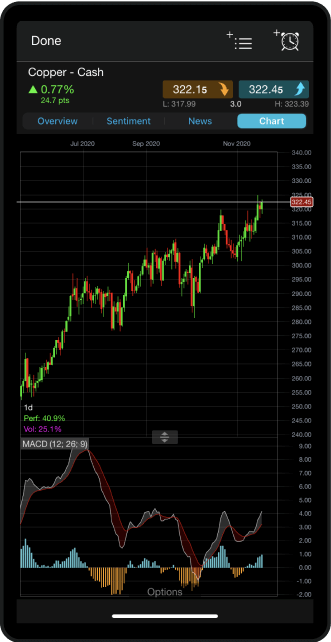
Arm Holdings IPO: Having originally been listed in the UK as well as on the Nasdaq in 1998, Arm was delisted in 2016, when SoftBank acquired it for $32bn.
Now looking to relist the business for a price tag which could be as high as $70bn, SoftBank hopes to draw a line under an acquisition that has undergone mixed fortunes over the past few years,
as well as trying to raise cash. The UK-based chipmaker recorded a loss of $65.5m in Q1, following a mixed performance under SoftBank's stewardship.

Instacart IPO: The San Francisco-based e-commerce company has set a price range of $26 to $28 per share for its IPO, valuing the online grocery delivery company between $7.17bn and $7.73bn,
under a fifth of the valuation two years ago. Instacart will offer 22mn shares, or 8% of the company's stock, which could raise up to $616m.
Shares are expected to begin trading week commencing 18 September 2023.

Reddit IPO: Online social network and message board Reddit has just hired its first CFO as it prepares go public on the stock market.
The current value of the company is around $6 billion and it plans to expand the business even further with the funding that it receives from the IPO, which may occur in 2023.
Reddit's IPO comes at a convenient time for the company, after traders of the forum sparked a rally in January 2021 of shorted stocks such as Gamestop and AMC,
which are good examples of a short squeeze in the stock market.

Brewdog IPO: Craft-beer brewer BrewDog is a British company that has repeated its plans for an IPO on the London Stock Exchange at some point in 2023. The company previously announced its plans in 2018 but has been waiting for the right time to debut its shares to the public. BrewDog's IPO could value the company at over £1 billion.

Kraken IPO: American cryptocurrency exchange Kraken is expected to debut its shares on the stock market in 2023, making it the second US-based crypto stock to go public. The company is reportedly tied between having a traditional IPO or using a special-purpose acquisition company (SPAC), although it may have too high of a value for the latter and therefore, it would be more likely consider a direct listing. Kraken is currently valued at around $4 billion but this could rise to $20 billion after its next funding round.

Stripe IPO: Digital payments provider Stripe is planning a direct listing as it doesn't need to raise money, it has been reported. The company is backed by Elon Musk and serves clients such as Google, Amazon and Zoom, and it has been hailed as one of the world's most valuable start-ups. It was last valued at $95bn in a fundraising round in March 2021.

Starlink IPO: Elon Musk's satellite constellation is due to IPO as a spin-off from parent company SpaceX, although it is unknown when the company plans to do this, as Musk is looking for "more predictable cash flows" first. The company is valued at around $42bn or potentially higher, currently generating annual revenues of $10bn.

Monzo IPO: British online bank Monzo is joining the fleet of UK tech companies to debut on the stock market in 2023. The unicorn start-up was originally valued at £2bn in 2019 but this was slashed to £1.24bn in 2020 after a fundraising round. CEO TS Anil believes that this figure is undervalued and Monzo could be worth a lot more, so keep an eye out for updates.

Virgin Atlantic IPO: Richard Branson is planning an IPO to help its airline company recover from the pandemic, with expected losses of £1bn throughout the period. The stock will most likely list on the London Stock Exchange and could happen as early as 2023.

Houzz IPO: American home design website and community Houzz's IPO is eagerly awaited by investors, and there is speculation that the company could choose either an IPO or SPAC route at some point in 2023. Despite dismissing around 10% of its staff last year, the housing sector has experienced new highs in 2021 and Houzz raised $400m in 2017, with an estimated valuation of $4bn.

Databricks IPO: Software start-up Databricks is an artificial intelligence (AI) powered data company. It has reached a valuation of $38bn after multiple rounds of financing this year from the likes of Fidelity and Franklin Templeton. Its clients include Royal Dutch Shell and AstraZeneca, with an annual recurring revenue of over $600m.

Revolut IPO: Revolut is touted as the UK’s biggest fintech company with a valuation of over £24bn and could debut on the stock market at some point in 2023. The company reported a 57% increase in revenue between 2019 and 2020, up from £166m to £261m, of which 15% was accounted for by its cryptocurrency division.

Discord IPO: Discord runs an instant messaging platform and app where users can interact over voice, video and text, boasting an audience of over 150 million monthly active users. According to Forbes, the company could be valued up to $17bn, having seen an active year in terms of fundraising.

Klarna IPO: Klarna belongs to the buy now, pay later (BNPL) industry that's taking the financial world by storm, with services allowing users to spread the cost of purchases over multiple transactions. The company has over 90 million active consumers and a valuation of over $45bn, making it one of the most important fintech companies in the world right now. Klarna's IPO could take place at some point in 2023.

Starling Bank IPO: British digital challenger bank Starling has grown its customer base to more than 2.5 million over the years. It even became profitable during the Covid-19 pandemic and the company shows no signs of slowing down as digital banking continues to grow. It's expected to debut on the LSE in 2023.






















